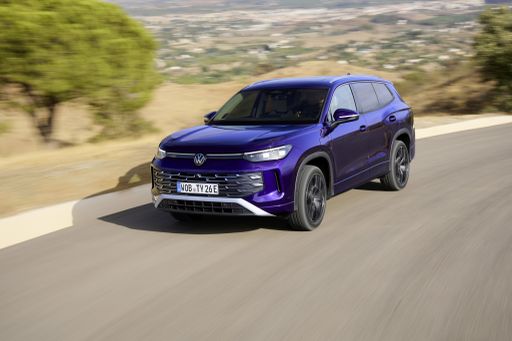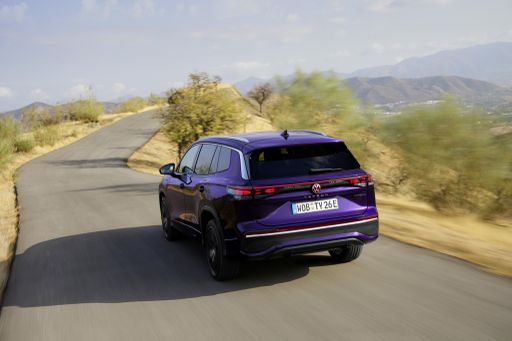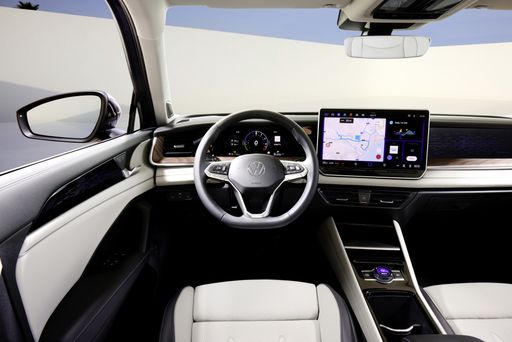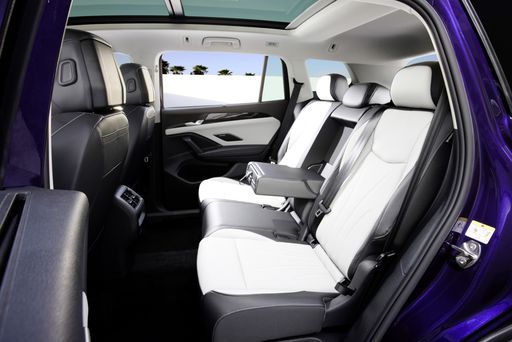Kia Sorento vs VW Tayron - Differences and prices compared
Compare performance (252 HP vs 272 HP), boot space and price (46900 £ vs 39600 £ ) at a glance. Find out which car is the better choice for you – Kia Sorento or VW Tayron?
Costs and Efficiency:
Price and efficiency are key factors when choosing a car – and this is often where the real differences emerge.
VW Tayron has a to a small extent advantage in terms of price – it starts at 39600 £ , while the Kia Sorento costs 46900 £ . That’s a price difference of around 7265 £.
Fuel consumption also shows a difference: VW Tayron manages with 1.50 L and is therefore minimal more efficient than the Kia Sorento with 1.60 L. The difference is about 0.10 L per 100 km.
As for electric range, the VW Tayron performs convincingly better – achieving up to 123 km, about 68 km more than the Kia Sorento.
Engine and Performance:
Power, torque and acceleration say a lot about how a car feels on the road. This is where you see which model delivers more driving dynamics.
When it comes to engine power, the VW Tayron has a hardly perceptible edge – offering 272 HP compared to 252 HP. That’s roughly 20 HP more horsepower.
In acceleration from 0 to 100 km/h, the VW Tayron is convincingly quicker – completing the sprint in 6.10 s, while the Kia Sorento takes 8.80 s. That’s about 2.70 s faster.
In terms of top speed, the VW Tayron performs clearly perceptible better – reaching 240 km/h, while the Kia Sorento tops out at 183 km/h. The difference is around 57 km/h.
There’s also a difference in torque: Kia Sorento pulls slight stronger with 440 Nm compared to 400 Nm. That’s about 40 Nm difference.
Space and Everyday Use:
Beyond pure performance, interior space and usability matter most in daily life. This is where you see which car is more practical and versatile.
Seats: Kia Sorento offers clearly perceptible more seating capacity – 7 vs 5.
In curb weight, VW Tayron is slightly lighter – 1682 kg compared to 1855 kg. The difference is around 173 kg.
In terms of boot space, the VW Tayron offers evident more room – 885 L compared to 705 L. That’s a difference of about 180 L.
In maximum load capacity, the VW Tayron performs hardly perceptible better – up to 2090 L, which is about 13 L more than the Kia Sorento.
When it comes to payload, Kia Sorento somewhat takes the win – 685 kg compared to 566 kg. That’s a difference of about 119 kg.
Who wins the race?
The VW Tayron proves to be leaves the rival little chance and therefore becomes our DriveDuel Champion!
VW Tayron is the better all-rounder in this comparison.

VW Tayron
Costs and Consumption
View detailed analysis
Engine and Performance
View detailed analysis
Dimensions and Body
View detailed analysis
Kia Sorento
The Kia Sorento blends roomy practicality with smart tech and an unexpectedly composed highway manner, making it an easy choice for families who want comfort without fuss. It presents classy interior touches and sensible packaging at a realistic price, proving you don't need to shout to be noticed in the SUV crowd.
details


VW Tayron
The VW Tayron is Volkswagen's roomy, no-nonsense SUV that pairs clean, familiar styling with a practical cabin built for families and everyday use. It rides comfortably, packs sensible tech and creature comforts, and feels like the sensible sweater of SUVs for buyers who prefer steady value over headline-grabbing drama.
details



Costs and Consumption |
|
|---|---|
|
Price
46900 - 59300 £
|
Price
39600 - 53300 £
|
|
Consumption L/100km
1.6 - 7 L
|
Consumption L/100km
1.5 - 8.5 L
|
|
Consumption kWh/100km
-
|
Consumption kWh/100km
-
|
|
Electric Range
55 km
|
Electric Range
116 - 123 km
|
|
Battery Capacity
-
|
Battery Capacity
19.70 kWh
|
|
co2
37 - 174 g/km
|
co2
33 - 192 g/km
|
|
Fuel tank capacity
47 L
|
Fuel tank capacity
45 - 58 L
|
Dimensions and Body |
|
|---|---|
|
Body Type
SUV
|
Body Type
SUV
|
|
Seats
5 - 7
|
Seats
5
|
|
Doors
5
|
Doors
5
|
|
Curb weight
1855 - 2105 kg
|
Curb weight
1682 - 1948 kg
|
|
Trunk capacity
175 - 705 L
|
Trunk capacity
705 - 885 L
|
|
Length
4810 - 4815 mm
|
Length
4792 mm
|
|
Width
1900 mm
|
Width
1853 - 1866 mm
|
|
Height
1695 mm
|
Height
1666 - 1668 mm
|
|
Max trunk capacity
1988 - 2077 L
|
Max trunk capacity
1915 - 2090 L
|
|
Payload
162 - 685 kg
|
Payload
489 - 566 kg
|
Engine and Performance |
|
|---|---|
|
Engine Type
Plugin Hybrid, Full Hybrid, Diesel
|
Engine Type
Petrol MHEV, Diesel, Petrol, Plugin Hybrid
|
|
Transmission
Automatic
|
Transmission
Automatic
|
|
Transmission Detail
Automatic Gearbox, Dual-Clutch Automatic
|
Transmission Detail
Dual-Clutch Automatic
|
|
Drive Type
All-Wheel Drive, Front-Wheel Drive
|
Drive Type
Front-Wheel Drive, All-Wheel Drive
|
|
Power HP
194 - 252 HP
|
Power HP
150 - 272 HP
|
|
Acceleration 0-100km/h
8.8 - 9.7 s
|
Acceleration 0-100km/h
6.1 - 9.7 s
|
|
Max Speed
183 km/h
|
Max Speed
204 - 240 km/h
|
|
Torque
367 - 440 Nm
|
Torque
250 - 400 Nm
|
|
Number of Cylinders
4
|
Number of Cylinders
4
|
|
Power kW
142 - 185 kW
|
Power kW
110 - 200 kW
|
|
Engine capacity
1598 - 2151 cm3
|
Engine capacity
1498 - 1984 cm3
|
General |
|
|---|---|
|
Model Year
2024 - 2025
|
Model Year
2025
|
|
CO2 Efficiency Class
B, E, F
|
CO2 Efficiency Class
E, F, G, B
|
|
Brand
Kia
|
Brand
VW
|
What drivetrain options does the Kia Sorento have?
The Kia Sorento is available as All-Wheel Drive or Front-Wheel Drive.




